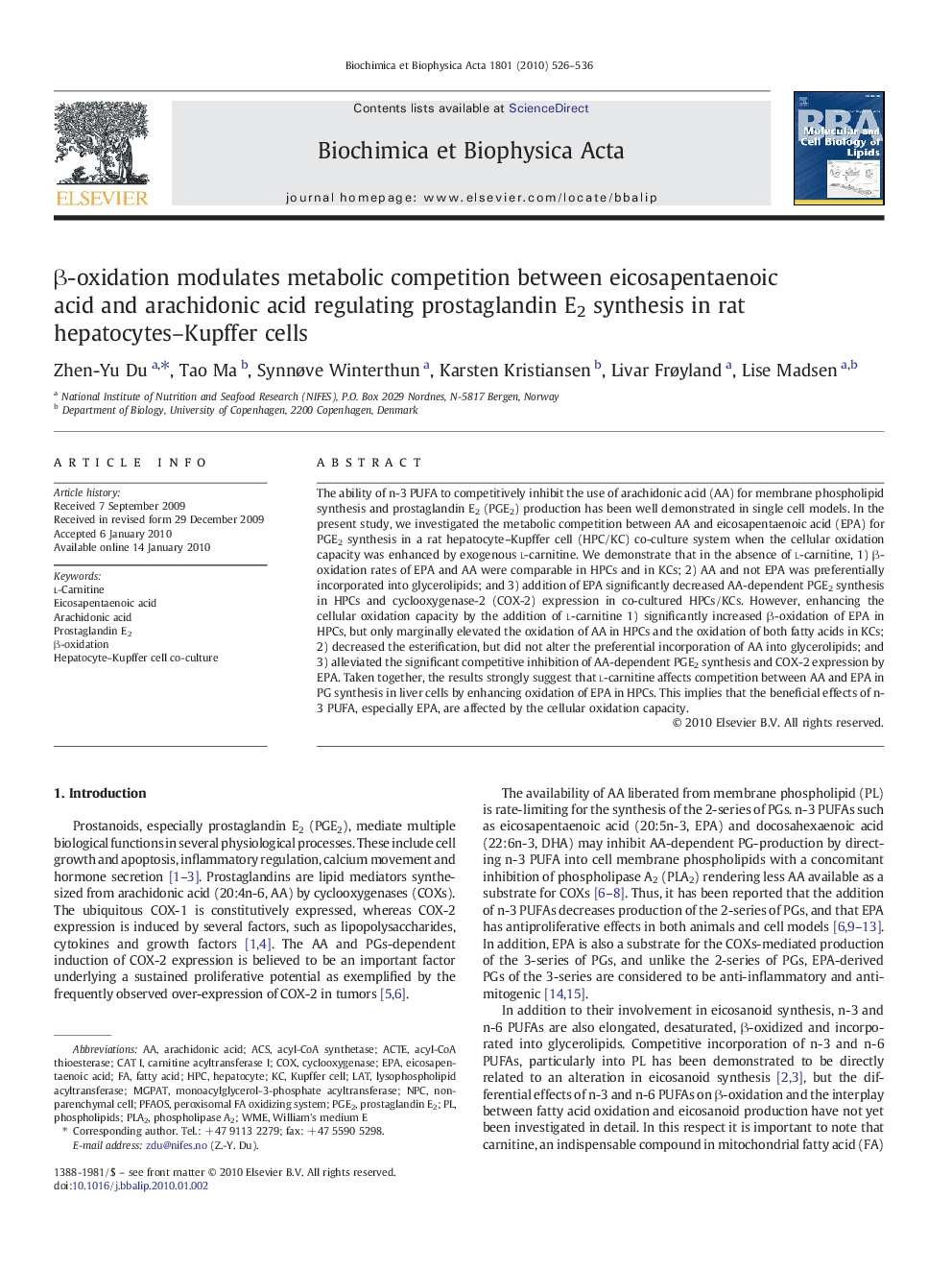| Article ID | Journal | Published Year | Pages | File Type |
|---|---|---|---|---|
| 1949770 | Biochimica et Biophysica Acta (BBA) - Molecular and Cell Biology of Lipids | 2010 | 11 Pages |
The ability of n-3 PUFA to competitively inhibit the use of arachidonic acid (AA) for membrane phospholipid synthesis and prostaglandin E2 (PGE2) production has been well demonstrated in single cell models. In the present study, we investigated the metabolic competition between AA and eicosapentaenoic acid (EPA) for PGE2 synthesis in a rat hepatocyte–Kupffer cell (HPC/KC) co-culture system when the cellular oxidation capacity was enhanced by exogenous l-carnitine. We demonstrate that in the absence of l-carnitine, 1) β-oxidation rates of EPA and AA were comparable in HPCs and in KCs; 2) AA and not EPA was preferentially incorporated into glycerolipids; and 3) addition of EPA significantly decreased AA-dependent PGE2 synthesis in HPCs and cyclooxygenase-2 (COX-2) expression in co-cultured HPCs/KCs. However, enhancing the cellular oxidation capacity by the addition of l-carnitine 1) significantly increased β-oxidation of EPA in HPCs, but only marginally elevated the oxidation of AA in HPCs and the oxidation of both fatty acids in KCs; 2) decreased the esterification, but did not alter the preferential incorporation of AA into glycerolipids; and 3) alleviated the significant competitive inhibition of AA-dependent PGE2 synthesis and COX-2 expression by EPA. Taken together, the results strongly suggest that l-carnitine affects competition between AA and EPA in PG synthesis in liver cells by enhancing oxidation of EPA in HPCs. This implies that the beneficial effects of n-3 PUFA, especially EPA, are affected by the cellular oxidation capacity.
